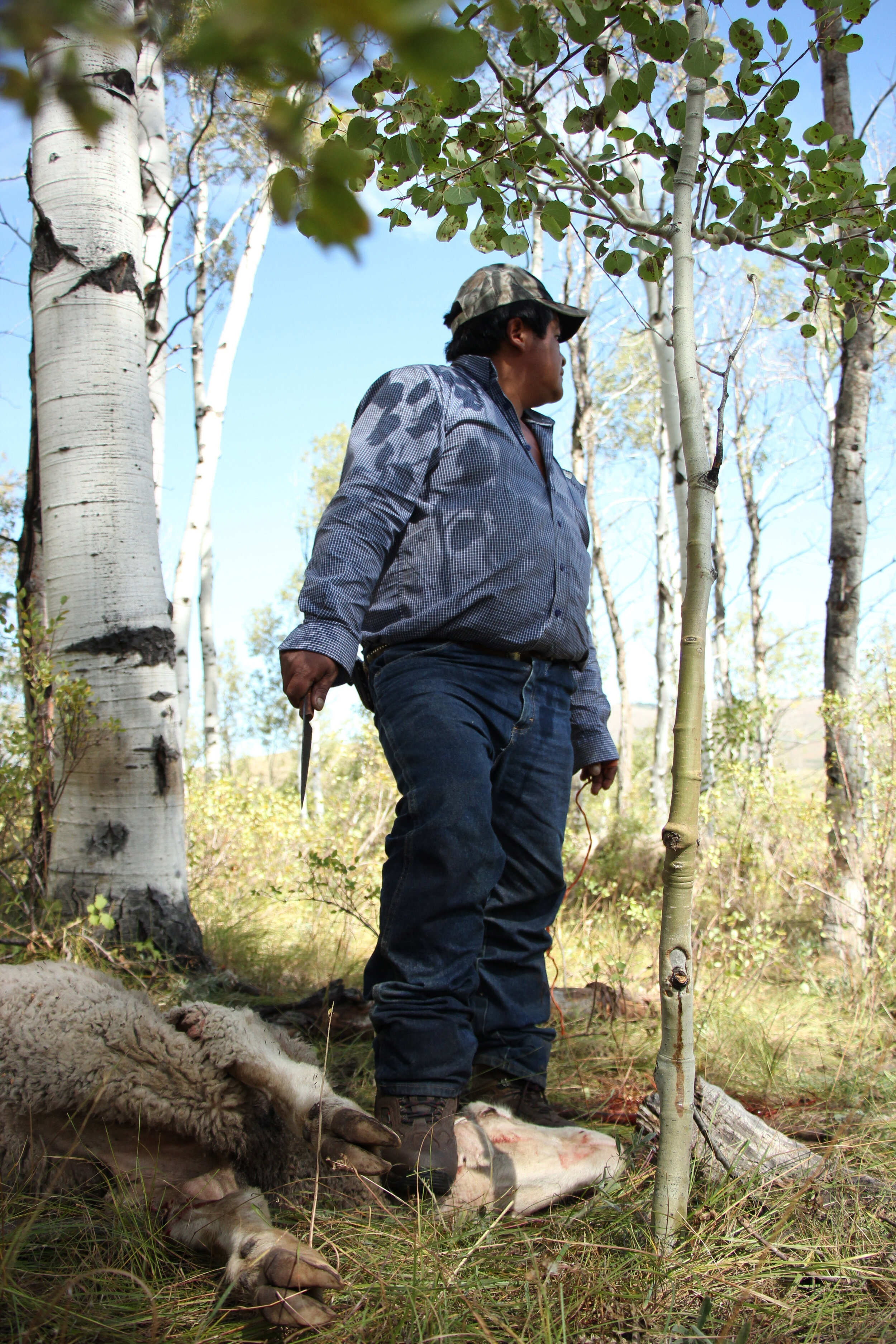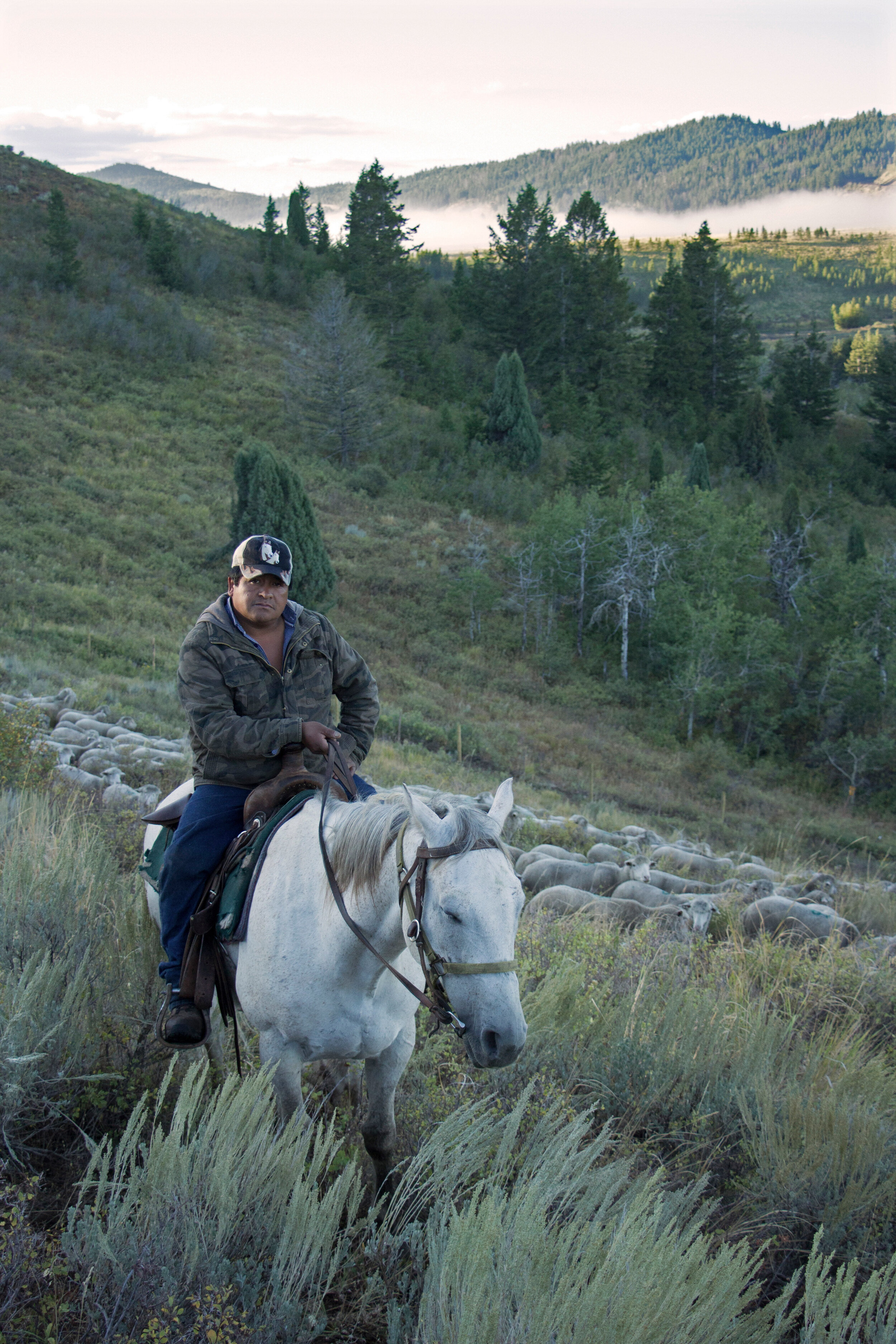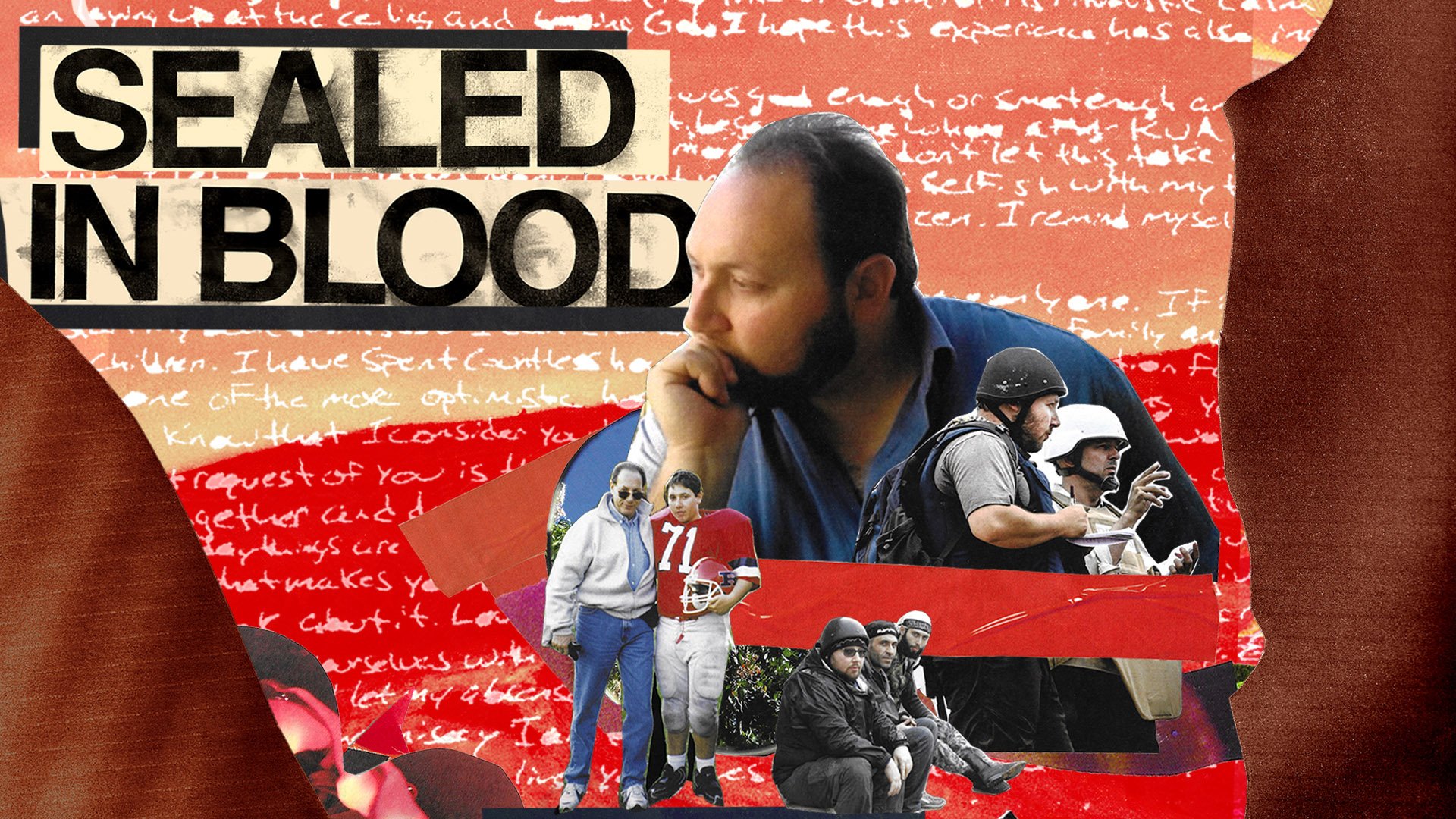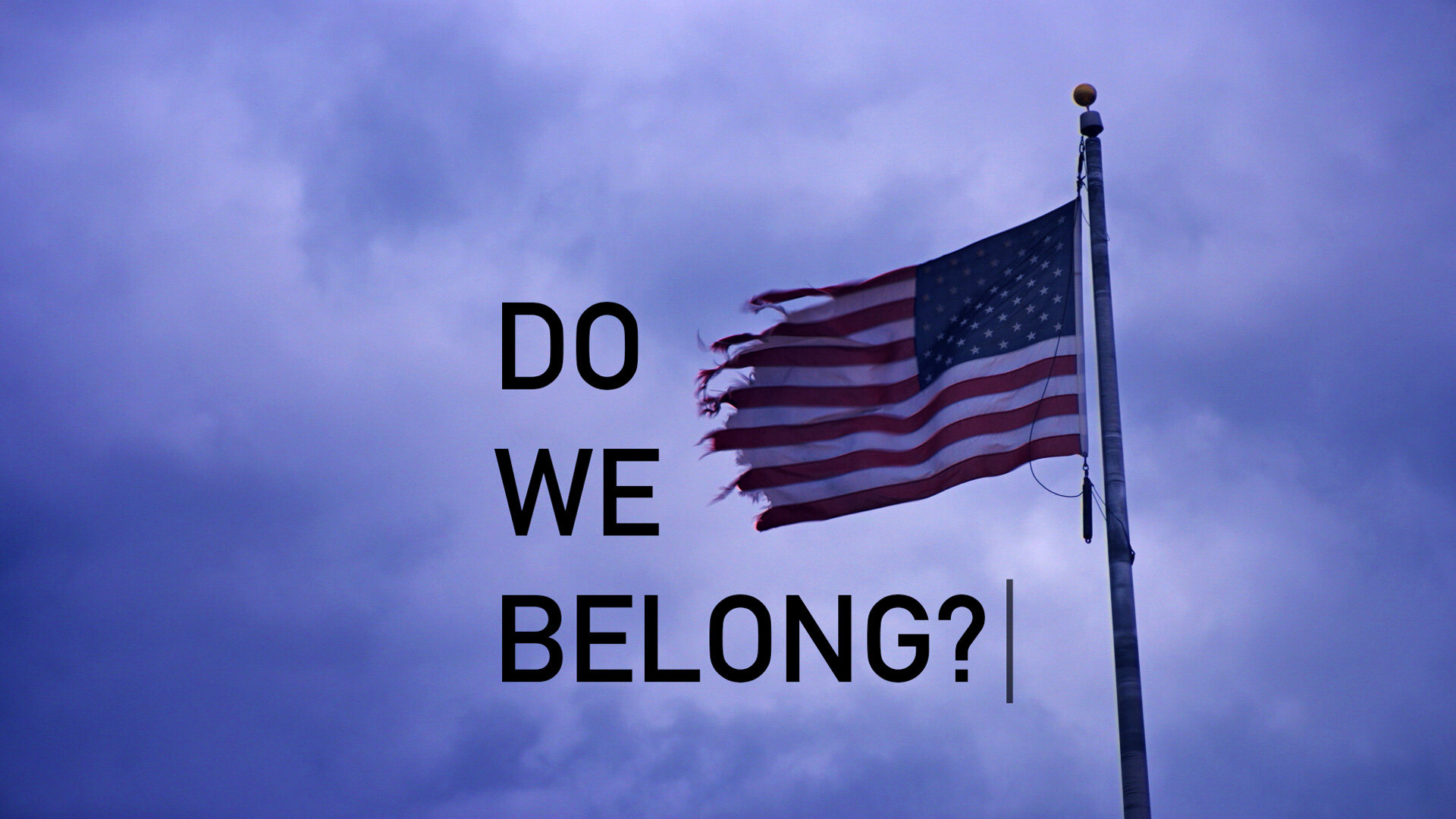Gaucho del Norte
Far from home, alone, in the wilderness. The life of a sheep herder in today's globalized world.
Gaucho del Norte tells the story of South American sheep herders recruited to work in Idaho on three year contracts. The nomadic journey follows Chilean Eraldo Pacheco, Peruvian Jhonny Quispe, and a herd of more than a thousand sheep across a lonely, rugged landscape --- from the harsh beauty of wintry high desert, to the lush summer mountains. Living in isolation, Eraldo and Jhonny face the ups and downs of a psychologically and physically demanding job far away from home and family, often questioning whether or not it's all worth it.
This is the second feature documentary under the Capital K banner, and marked the first collaboration between Sofian Khan and Andrés Caballero. The film takes an observational approach, with long takes and lingering moments between characters, and painterly visuals of the dramatic light and landscapes around them. Its quiet loneliness serves as a metaphor for the challenges of immigrant life, of leaving home and finding oneself in a far away and unfamiliar place.
It was also a challenge for us as filmmakers going into the remote wilderness. None of us had any experience working in those conditions, so there was a definite learning curve. Of course we had the sheepherder, Eraldo, watching out for us. But the greater challenge was keeping our equipment charged, backing up footage as we went, and in some cases keeping the camera functioning in double digit negative temperatures. Luckily we had some sponsors who helped us gear up, including a tent and other gear from REI.
We also got our hands on some solar gear from a company called Powerenz based in Georgia. Their durable foldout panels allowed us to keep everything up and running for nearly a month off the grid. In return, we produced a very cheesy product video:
We marveled at the endurance and mental toughness of our main subject, Eraldo, and how he was able to handle the busy day-to-day of keeping 1200 sheep fed and always on the move to greener pastures. There’s a misconception that this work is slow paced. And there were times when it slowed, certainly. But things always kicked off before dawn, and a large amount of the daylight hours were spent moving the herd, getting them to water, and making sure they were somewhere safe for the night. Wolves and coyotes were a very real threat – we encountered the bodies of some unlucky lambs, and often heard the coyotes yipping at night. The whip smart border collies and large shaggy sheep dogs were there for protection, but just a handful of them couldn’t always scare away the predators stalking the herd at night.
Although most of the workers were from Chile, Bolivia, Peru and other South American countries, we encountered a few white sheep herders along the way, including “Bear”, who invited us into his trailer for a chat. A Vietnam vet who’d dropped out of society and sworn off fossil fuels, he’d spent much of his life on the road, living in a wagon house drawn by a team of horses. They’d taken him from Maine all the way out here in Idaho. And we ended up spending a day with him out there on the edge of nowhere — exactly where he wanted to be.
By the end of the experience, we fully recognized how hard this lifestyle is, and that we were just tourists visiting for a short time. But there was also an undeniable romance to the place that we would surely miss. We documented our last trip in a fond farewell to southeastern Idaho.
The film would go on to have its premiere at the Big Sky Documentary Film Festival and be picked up for broadcast by PBS’ America ReFramed series. It can be streamed now on the official Capital K Pictures Vimeo on Demand page. And is available for educational use at New Day Films.
Click any project below


















![An Act of Worship [Short Film]](https://images.squarespace-cdn.com/content/v1/5e95abd96bcd5a1ba8f90df0/1671039909677-HXRHZTUY05MA8VCPNMDG/AnActofWorshipShort.jpg)







